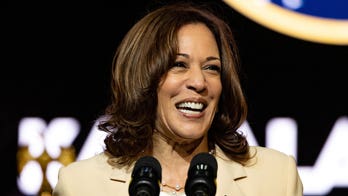A nominee for a district judgeship in Oklahoma faced difficulties defining basic legal terms during a Senate hearing, prompting concerns about the qualifications of President Biden's judicial appointments.

President Biden's milestone of appointing 200 federal judges, a move that will significantly impact the country's judiciary, has sparked debates about the qualifications and diversity of his appointees. However, the recent nomination hearing of a district judgeship candidate in Oklahoma has raised concerns about the nominees' competence.

During the hearing, Senator John Kennedy asked the nominee to define basic legal terms such as "injunction," "temporary restraining order," and "discovery." The nominee struggled to provide clear and accurate definitions, prompting skepticism about her understanding of essential judicial concepts.
The incident highlights broader concerns about the quality of Biden's judicial appointments, with Republicans criticizing them as "the most political nominees" they have witnessed. Josh Hammer of the Article III Project accused the Biden administration of packing the federal judiciary with "radical left-wing judges," compromising the impartiality and fairness of the legal system.

Despite these concerns, Biden, Majority Leader Chuck Schumer, and Senate Judiciary Committee Chair Dick Durbin celebrated the diverse backgrounds of the appointees, emphasizing the increase in female, minority, and LGBTQ+ representation on the bench. Schumer touted the appointment of 127 women and 125 people of color, double and triple the number confirmed under the previous administration, respectively.
However, Carrie Severino of the Judicial Crisis Network argued that the judges were not selected for their fidelity to the Constitution and the rule of law but rather their political affiliations. Kennedy expressed fear that "political activists" would occupy the bench, while Lindsey Graham emphasized the long-term impact of the appointments, noting that many would serve for life.

According to Severino, the 2024 election will ultimately determine the composition of the federal judiciary, as upcoming appointments may sway the balance of power. Josh Hammer echoed this sentiment, highlighting the importance of conservative judges in upholding constitutional principles and limiting government overreach.
While Biden has outpaced Trump in judicial appointments at the district court level, he has not been able to match Trump's record at the appellate or Supreme Court levels. Trump confirmed 51 appellate court judges and three Supreme Court justices, shaping the federal judiciary with more conservative voices.

The debate over Biden's judicial appointments underscores the critical role of the judiciary in interpreting the law and protecting individual rights. The struggles faced by the Oklahoma nominee raise concerns about the competence of some appointees, while the diversity of the appointees suggests a shift towards greater representation on the bench. Ultimately, the quality and balance of the federal judiciary will continue to be a contentious topic in American politics.










